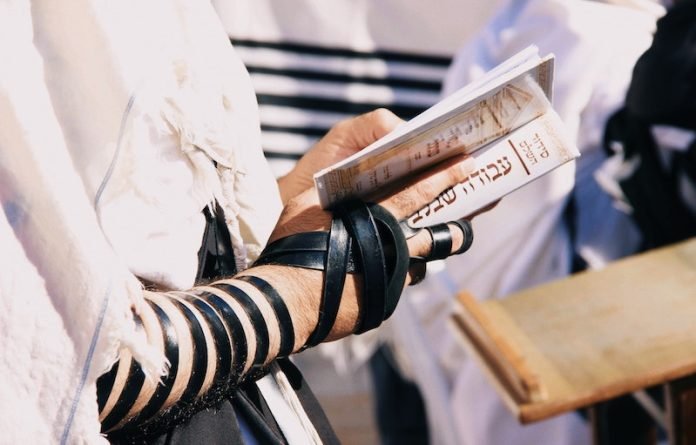
In a study from the University of Cincinnati, scientists found that people who wear tefillin, leather bands used in a Jewish religious practice that involves the tight wrapping of an arm with the bands, may receive heart health benefits.
The team suggests those benefits are the result of ischemic or reduced blood flow preconditioning which produces protection from the damage caused by heart attacks.
Tefillin is used for morning prayers for Jewish men over the age of 13 on an almost daily basis.
It is placed on the non-dominant arm around the bicep and the forearm in a fairly tight manner. It is never worn in a fashion as to occlude blood flow.
This is traditionally worn for about 30 minutes continuously during prayers which involve sitting and standing resulting in occasional retightening of the strap around the arm.
The team says the binding of the arm and the discomfort users often report may serve as a form of preconditioning and offer a substantial degree of protection against the damage that occurs when someone suffers a sudden loss of blood flow (acute ischemia) or after the blood supply is restored to a tissue or organ after an ischemic event (reperfusion).
Such injuries occur during a heart attack when a section of the heart is deprived of oxygen and then damaged further when blood flow is re-established.
In the study, the team measured baseline information on all participants for 10 minutes in the morning, and then another round of data was obtained during and after 30 minutes of wearing the tefillin.
The 30 participants, all healthy people between the ages of 18 to 40, had their heart rates measured before, during and after the wearing of tefillin.
They found that wearing tefillin in both males and females caused changes to the heart rate linked to lowering of the metabolism as measured via heart rate variability.
This showed there is a measurable effect during and after wearing tefillin.
The researchers expect that those people should be protected or should have a decreased amount of damage if they should get a heart attack during the time they are protected
This is a low-intensity way of protecting people from heart attacks.
While wearing tefillin is a traditional practice of Orthodox Jewish men, the team points out this research did not include any usage of anything containing sacred religious text.
They also say that the frequency of heart attacks, which according to the Centers for Disease Control and Protection strike more than 800,000 people in the United States each year, makes this research potentially very impactful.
If you care about heart failure, please read studies about Aspirin is linked to higher risk of heart failure, and how to remove plaques that cause heart attacks.
For more information about heart health, please see recent studies that Vitamin D deficiency can increase heart disease risk, and results showing Vitamin K2 could help reduce heart disease risk.
The study was conducted by Jack Rubinstein et al and published in PLOS ONE.
Copyright © 2023 Knowridge Science Report. All rights reserved.



